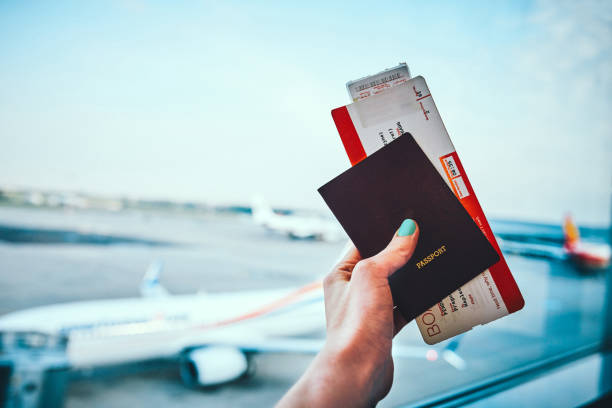The National Association of Nigeria Travel Agents (NANTA) has expressed grave concerns over the burgeoning issue of Cross-Border Trade (CBT) in air tickets, which has led to significant financial losses for its members. According to NANTA, the practice has resulted in losses amounting to N25 million, prompting an urgent call for its members to cease purchasing these tickets.
NANTA’s President, Mr. Yinka Folami, in a statement made, highlighted the alarming dimensions of cross-border ticket trading. He noted that travel customers and some members of NANTA have incurred substantial losses, with reported cases reaching as high as N25 million. These losses are primarily due to the non-refundable nature of cross-border tickets and the poor service associated with them.
Folami detailed several challenges posed by cross-border ticket trading, including high restrictions on tickets, delayed communications due to time zone differences, and increased incidences of no-shows. He warned that despite the initial profitability of purchasing cross-border tickets, a single issue could wipe out all previous profits, leaving agents heavily indebted to customers and vulnerable to legal actions.
The NANTA president outlined the detrimental effects of cross-border trading on the economy, citing capital flight, poor customer service, and the devaluation of local assets. He stressed that the practice negatively impacts airlines, Global Distribution System (GDS) companies, and travel agencies, potentially leading to significant job losses.
Folami also addressed the role of the International Air Transport Association (IATA) in the issue. He pointed out that IATA’s application of the Rate of Exchange (ROE) often ends up higher than parallel market rates, fostering speculation and encouraging the purchase of cross-border tickets. NANTA plans to discuss with the Federal Government through the Aviation and Aerospace Development Minister, Festus Keyamo, to clarify if IATA is authorized to apply ROE daily with a 2-day lag.
Contrary to popular belief, IATA does not fix the ROE but publishes figures from the FMDQ dashboard of the I&E FX Window. However, this practice by IATA of applying ROE daily has harmful consequences on the market, putting further pressure on the Naira. NANTA has included this issue in its discussions with the government, emphasizing the need for IATA to reconsider its practice.
Folami criticized global merchants for undermining the Nigerian market by offering global fares not available locally, leading to declining sales and deficits for local players. He stressed that NANTA is not against global players entering the Nigerian market but insisted they should play fair.
In his address, Folami assured members that NANTA is working diligently to stabilize the market. He mentioned that the association had engaged with airlines, GDS companies, the Nigerian Civil Aviation Authority (NCAA), and the Federal Competition and Consumer Protection Commission (FCCPC). Meetings with the Federal Government, facilitated by the Aviation Minister, are also in the pipeline.
Folami urged NANTA members to desist from buying cross-border tickets, emphasizing the serious consequences, including potential legal repercussions. He highlighted the association’s commitment to fair play and protecting the local industry. He encouraged members to stay united, keep their focus, and trust in NANTA’s ability to address the challenges facing the travel industry.
“We assure you that we are working hard, behind the scenes, to stabilize this market. Airlines, GDS companies, and the government have received our message on fair play very well. We are already seeing signs of relative stability, and we are confident that we will get there. Pending that, we strongly advise that NANTA members desist from buying cross-border tickets,” Folami stated.
He concluded by reflecting on his tenure, noting the productive engagements with key stakeholders and expressing optimism about resolving the issues affecting the travel industry.
















